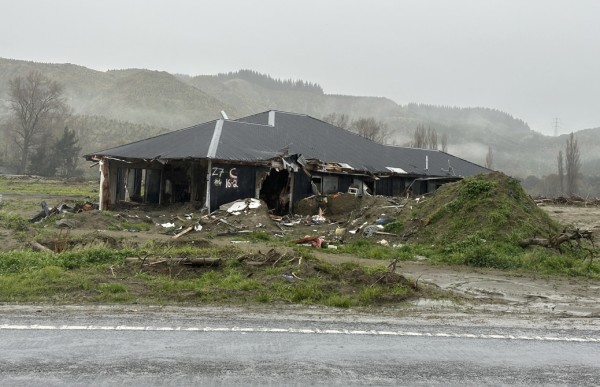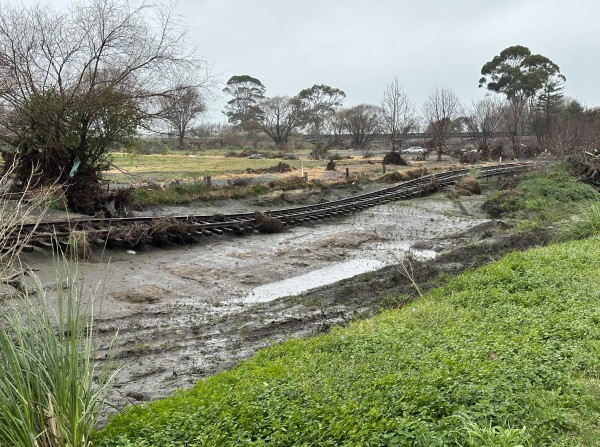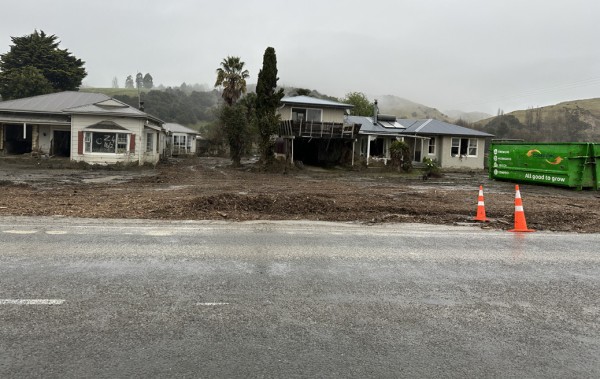Resources » Blog - Building Surveying NZ » Budget 2023: Is $1 Billion enough?
Budget 2023: A few months down the track and the question still remains:
Will the $ 1 billion support package for affected communities make the impact Hawke’s Bay needs?
Hawke’s Bay was severely affected by Cyclone Gabrielle back in February, and for many, the past few months have been grueling. Scott Dunnett, NZIBS Executive Committee: Industry Liaison and resident of Hawke’s Bay discussed what Budget 2023 means for flood and cyclone-affected communities in Hawke’s Bay. (Based on the article in NZIBS' The Journal, Issue 11)

“Being a resident of Hawke’s Bay, I have seen and felt the impacts of Cyclone Gabrielle first-hand. Whilst the recent Budget announcements have brought some good news for our region, there is still a lot of uncertainty.”
$1b dollars – the response to immediate recovery needs of today, and an investment in greater resilience for tomorrow.
- Crop production is down 30%.
- Approximately 236 residential properties are in the high-risk category 3.
- More than 2,500 properties are now in category 2, requiring better flood protection to be considered liveable.
- Councils are under Incredible pressure.
- Nearly 525 schools have been identified for flood damage funding.
For many businesses, it will take years before they are able to quantify the financial impact of the cyclone. For some vineyards, it could be 10 years before they are able to produce wine again.
For a lot of people and organisations, they are only just getting to grips with what that means, following announcements on where rebuilding will be allowed.

In Category 3 areas, a currently unacceptable level of future risk means it may no longer be safe for people to live there. Future severe weather event risks cannot be sufficiently mitigated. In some cases, some current land uses may remain acceptable, while for others there is an intolerable risk of injury or death.
In Category 2 areas, risk mitigation may be required at either a community or a property-specific level in order for the area to be safe to live.
Even though work on the recovery began immediately after the cyclone, the wait for the categorisation decisions were a significant roadblock, putting immense pressure on councils.
The immediate needs after these types of events are obvious, but it seems our systems and processes do not provide immediate relief or action, regardless of what dollar allocation is provided in the Budget. It is clear there will be a far more complex decision process to work through.
The Government has committed to returning all schools to their pre-flood state. For a number of our schools impacted by the cyclone, this has not been the first time they’ve suffered flood damage. Is a pre-flood state enough to provide greater resilience for tomorrow? A long-term master plan is needed for our schools if we’re to make the most of the funds available and rebuild in a way that can truly provide resilience.
Let’s talk about Insurance.
A number of damaged properties were not insured for a variety of reasons. The impact of people losing their property and possessions to a disaster is devastating for those affected and can have a long-term impact on future generations. If we want ‘resilience’, insurance will play a critical role, and we need to understand what prevents people from having insurance and make changes.
Greater resilience for the future is a nice goal, but there are factors that will potentially stand in the way of this aspiration for some property owners. If your property has been damaged and you have insurance, the insurance will typically cover repairs or a rebuild. It will not cover the type of upgrades that would provide resilience – raising floor levels, more durable materials. etc.
The timelines on Earthquake Commission claims are predicted to extend out to approximately four years due to a lack of assessors. The Government are currently reviewing options for bringing in assessors from overseas. However, costs will continue to rise in the meantime.
Government funding obviously helps with disaster recovery, but without people, the recovery slows to a crawl.
So the question is – will the $1billion support package for affected communities in Hawke’s Bay be enough?
The answer is as clear as mud.
The Budget 2023 package is for all flood and cyclone-affected communities across the North Island.
The predicted financial impact of the cyclone at the time of the article publication was around $5 billion over 10 years for Hawke’s Bay alone.


